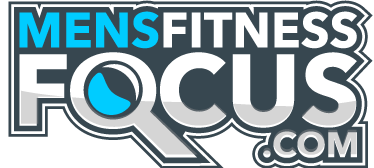What is Tai Chi? And why you should try it
07/14/2018 / By Bridgette Wilcox

In the world of fitness, Tai Chi may just be one of the most underrated form of exercise. It is, after all, a slow and steady exercise favored by older people — and while the gentleness of its movements is striking, it doesn’t exactly rank high in terms of glamour for an audience that favors strength, speed, and theatrics. Of course, there’s more to this practice than meets the eye — and an article on TreeHugger.com has listed the reasons why this “unusual and effective form of exercise” is worth a shot.
According to the article, Tai Chi is a practice that originated from ancient China. Originally designed to be a martial art, it is a combination of low-impact movements and meditation that can help improve one’s mental and physical well-being. Further, the National Center for Complementary and Integrative Health (NCCIH) has said that Tai Chi movements can be practiced while walking, standing, or sitting. It is a practice that has a lot of similarity with Qi Gong, another Chinese practice, although Tai Chi, when done at a certain speed, can be a form of combat, going back to its martial arts roots.
Treehugger shared three reasons why Tai Chi is a good form of exercise:
- First, Tai Chi enhanced the fitness level of its practitioners. The article quoted Dr. Michael Irwin, Director of the Mindful Awareness Research Center at UCLA, who said, “People who do Tai Chi achieve similar levels of fitness as those who walk or do other forms of physical therapy.” Tai Chi has also been known to help manage pain in people who suffered from knee osteoarthritis, fibromyalgia, chronic neck pain, and back pain, according to the NCCIH. The article also cited studies that found Tai Chi helps improve balance and stability in patients who have mild-to-moderate Parkinson’s disease. It was revealed that those patients who engaged in Tai Chi practice were more likely to continue doing so, compared to others who did resistance training or stretching instead.
- Because of the gentle, low-impact nature of Tai Chi movements, it is also very accessible to practitioners, no matter the age or fitness level. This, said TreeHugger.com, is another compelling reason to try Tai Chi. The article noted that the workout can be easily adapted to different fitness levels, including to accommodate people who have mobility restrictions, or those who are still recovering from surgery.
- Finally, the article said that Tai Chi’s focus on mindfulness and meditation is another reason to give the workout a shot. The practice itself engages one in the present, and trains practitioners to control their mind to focus on the here and now. Learning how to do so can help improve one’s concentration, therefore improving their performance at work.
In addition to that, NCCIH said that apart from being able to lower stress levels, there is also evidence that suggests that it can improve brain function in the elderly. Research has also suggested that Tai Chi can help lower levels of anxiety and depression.
These three reasons alone are compelling enough to push one to try this highly underappreciated workout program. The best part is, it’s not difficult to learn — with no complicated postures to get into, no heavy equipment to master, and no confusing competition rules.
Still, the NCCIH recommended that Tai Chi be learned from a trusted instructor instead of a video or book. That way, you can reap this practice’s benefits in all its gentle glory.
Read up on more ways to improve your fitness at Slender.news.
Sources include:
Tagged Under: alternative medicine, fitness, low-impact workouts, Meditation, mind-body exercises, tai chi, traditional Chinese medicine



















